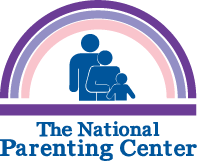 Parents who really believe that spanking is the only way to discipline usually continue to do it, no matter how many family counselors or parenting specialists advise against it. Parents who are unsure about ways to discipline, but who are open to learning other ways to guide or discipline their children, DO usually try other options, and find that they work far better than spanking.
Parents who really believe that spanking is the only way to discipline usually continue to do it, no matter how many family counselors or parenting specialists advise against it. Parents who are unsure about ways to discipline, but who are open to learning other ways to guide or discipline their children, DO usually try other options, and find that they work far better than spanking.
I have rarely seen a case where spanking “worked,” except when it was done to prevent or immediately stop hurtful or life threatening behavior. In a few cases, where children and parents have agreed that a spanking should be the consequence of misbehavior, it might work in the short term.
However, the real goal is to PREVENT misbehavior, not to give a spanking after the fact. The goal is to model and teach self discipline, which is why I don’t believe spanking works with teens or with children of any age. Spanking is based on fear, and adults who “lose it” and resort to physical and verbal violence are doing poor modeling which probably won’t have long-term positive impact on their kids. Spanking embarrasses teens and makes them angry, but does very little to change their behavior or teach self discipline.
The best way to guide teen behavior is to start early (when children are preschoolers) to set patterns of positive, firm guidance. These patterns include stating clear expectations, making simple rules, being consistent in following through with logical consequences for misbehavior, and most importantly, praising for GOOD behavior. Children repeat behavior for which they are praised, and patterns put in place in the early years usually last.
Teens, who are trying the wings of freedom and independence, need to know that with freedom comes responsibility. They will still test your limits, even if you have already done all the “right” things when they were young. The best way to discipline them is by maintaining ongoing and open communication, and by making sure they know what you DO and DO NOT approve, and making them responsible for their actions.
If there’s a problem, parents should tell the teen very clearly why the misbehavior is not in his or her long-term best interest, and why it must stop.
Evelyn Petersen’s nationally syndicated parenting column is carried in over 200 newspapers twice each week. As a family/parenting consultant, early childhood educator, Head Start consultant, and host of a series of parent training audio and video tapes, Ms. Petersen employs an approach of providing hands-on, nuts and bolts advice to parents across the country.Evelyn Petersen’s nationally syndicated parenting column is carried in over 200 newspapers twice each week. As a family/parenting consultant, early childhood educator, Head Start consultant, and host of a series of parent training audio and video tapes, Ms. Petersen employs an approach of providing hands-on, nuts and bolts advice to parents across the country.


